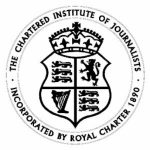 The Chartered Institute of Journalists (CIOJ) has persuaded the Investigatory Powers Commissioner’s Office to consider reporting more detailed information about warrants seeking journalists’ digital data and information that could identify their sources.
The Chartered Institute of Journalists (CIOJ) has persuaded the Investigatory Powers Commissioner’s Office to consider reporting more detailed information about warrants seeking journalists’ digital data and information that could identify their sources.
The IPCO is the oversight body set up by the controversial Investigatory Powers Act 2016, which is also known as ‘The Snoopers’ Charter.’
Institute Vice-President, Professor Tim Crook, has been asking for more detail about when state investigation bodies have applied to Judicial Commissioners for access to journalistic data that could be confidential information, or breach the protection of journalist sources.
Up until the present time the IPCO has only reported that in 2017 public authorities made a total of 755 applications to acquire data which related to persons who held sensitive professions and these could have related to ‘lawyers, journalists, members of parliament, ministers of religion or doctors.’
Professor Crook complained to the IPCO that given the importance of Article 10, freedom of expression rights to protect journalists’ confidential information and sources, this level of reporting was inadequate.
He said: “The 2017 report only stated that IPCO inspectors found no instances of the legislation being used ‘improperly to identify journalistic sources’. We need to know about those ‘proper’ instances when it has actually been used to reveal sources.”
He has asked for the exact figure of the times interception and use of journalistic data has been approved of by the judicial commissioners who evaluate the applications in secret.
The Institute believes the IPA 2016 legislation is a very poor substitute for the scrutiny of the courts under the Police and Criminal Evidence Act of 1984, when production orders against journalists have to be decided by judges with the parties represented by counsel.
The IPCO Legal and Policy Team told Professor Crook: “we will consider whether to include the information you have requested in the IPCO’s next annual report.”
The IPCO have defended their decision not to release any interim figures and information on the basis that they are “required to ensure that we do not cause national security or law enforcement concerns through the information we publish.”







Recent Comments